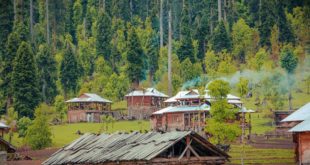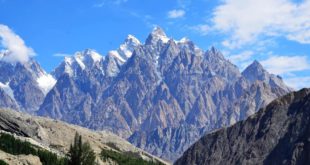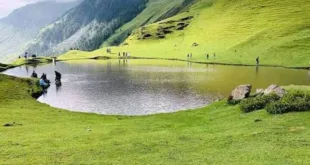Arrang Kel Azad Kashmir is truly regarded as a heaven on Earth, and Arrang Kel is its crown jewel. The valley is only 3 kilometres (1.9 miles) from Kel and 8,379 feet (2,554 metres) above sea level. Kel is 155 kilometres (96 miles) from Muzaffarabad and at an elevation of 6,880 feet (2,097 metres) above sea level. Location Kel is …
Read More »Tag Archives: FFK Blog
Passu Cones | An Amazing Phenomenon of Gilgit-Baltistan
Passu Cones While discussing Gilgit-Baltistan, Passu village is an important location, the meeting point of three of the world’s most mighty mountain ranges. K-2, Nanga Parbat, Gasherbrum, Masherbrum and Rakaposhi are amongst the highest peaks. This is the host of the Deosai Plains, the Baltoro glacier, the Batura glacier and many picturesque valleys. Hunza is a strikingly beautiful location that …
Read More »Neel Fairy Meadows – A Mystic Charm of Bedori Top
Neel Fairy Meadows Azad Kashmir is often referred to as “heaven on Earth” due to its mild and pleasant weather, which sets it apart from the rest of the world. The valleys of Kashmir include Neelum, Jhelum, and Pearl valleys. These are all popular tourist attractions in the Kashmir. However, Neel Fairy is a less visited location. Neel Fairy Meadows …
Read More »Top Cuisines Of Swat Valley, Pakistan
Top Cuisines of Pakistan Pakistani cuisines were influenced by Middle East and Central Asia in the beginning. However the cooking method and traditions are similar to North India, which dominate meaty items. The extreme diversity of Pakistani areas are differences in ethnic and cultural values from region to region. Top Punjabi and Sindhi cuisines are flavourful, but spicy. As we …
Read More »Urban Heat Islands (UHIs) Menace In Big Cities
A large number of Karachiites died as a result of Urban Heat Islands (UHIs) which was a climatic heatwave in June 2015. The situation got severe due to lack of water, electricity load shedding and a scarcity of life-saving medicines. The public service departments blamed one another. In this time of crisis, both the government and the general public must …
Read More » FFK Blog Fehmeeda Farid Khan Blog for Unsolved Miseries
FFK Blog Fehmeeda Farid Khan Blog for Unsolved Miseries





